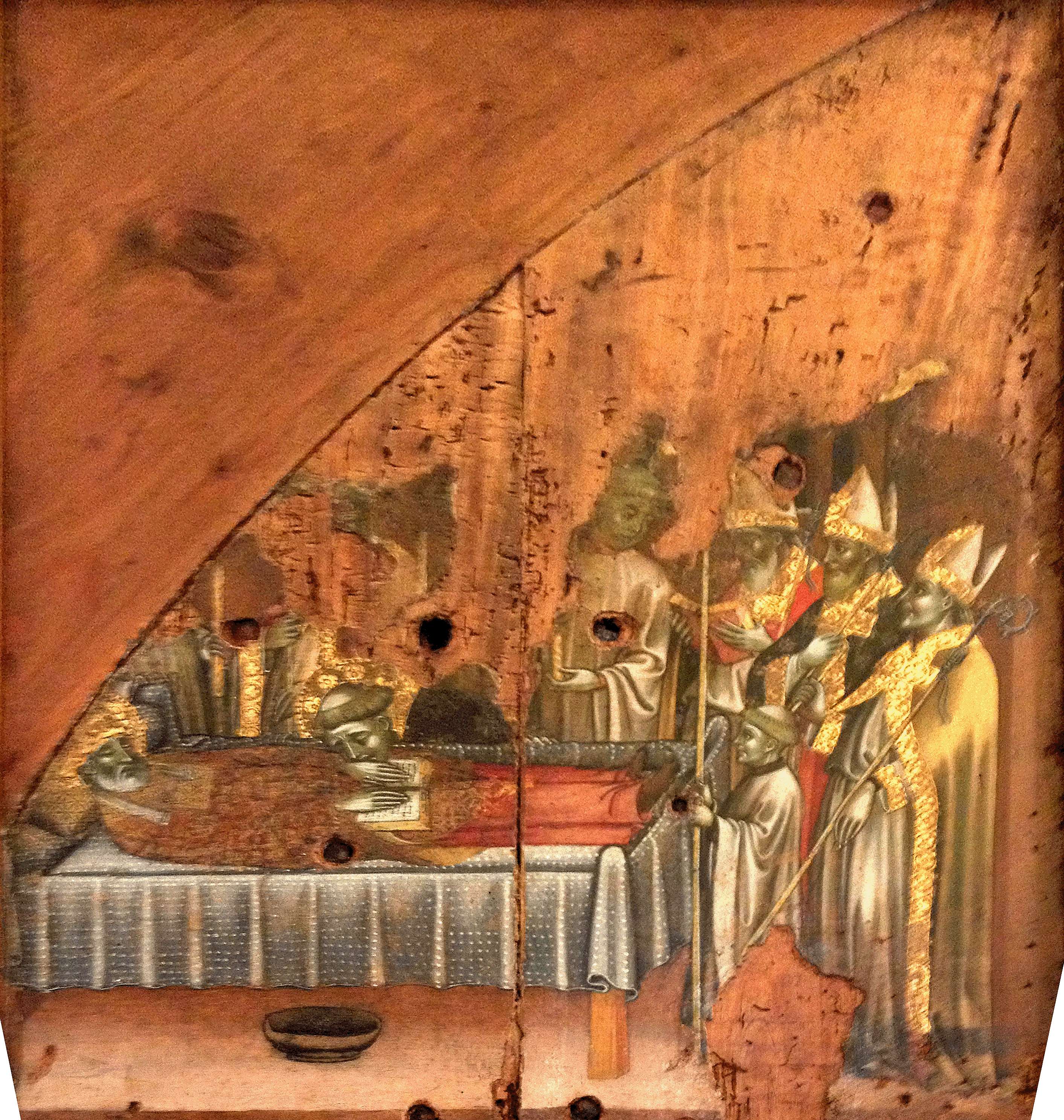And when he had refused to do sacrifice and was brought into prison of Mamertine, the blessed St. Laurence cried after him saying: Father, whither goest thou without thy son? Priest, whither goest thou without thy minister?
To whom Sixtus said: Son, I leave thee not, but greater battles be due to thee. After three days, thou deacon shalt follow me priest, but in the meanwhile take the treasures of the church and depart distribute them where thou wilt.
And when he had distributed them to poor Christian men, Valerian the provost ordained that Sixtus should be brought again for to do sacrifice in the temple of Mars, and if he refused it he should have his head smitten off. And when he was led, the blessed Laurence cried after him saying: Father, leave me not, for I have dispended all thy treasures.
And then the knights heard speak of the treasures, and held Laurence, and then they beheaded Sixtus, Felicissimus and Agapitus, and so they three suffered death together.
In this same day [i.e. August 6, Feast of St. Sixtus] is the feast of the Transfiguration of our Lord, and the blood of Christ is renewed of new wine if it may be founden of a ripe grape, in some churches, and this day be the grapes blessed in some places, and the people take thereof and eat it instead of holy bread. And the reason why is, of this that our Lord said in his supper to his disciples: I shall not drink of this generation of the vine tofore I shall drink it new with you in the realm of my Father. And this transfiguration in that which he said new, representeth the glorious invocation that Jesu Christ had after his resurrection, and therefore, on this day of the transfiguration, which representeth the resurrection, men seek new wine. And it is to wit that some say that the transfiguration was made in veer, springtime but the disciples disclosed it not, but kept it secret, because our Lord commanded that they should not disclose it till he was risen from death to life. But after they manifested and disclosed it on this day.
Golden Legend Table of Contents
Christian Iconography Home Page

The last rites of Sixtus I. St. Lawrence, identified by a halo, is pictured kissing the pope's hand while three bishops perform the rites. (See the description page for this image.)
ALSO SEE
VORAGINE'S ETYMOLOGY FOR THE NAME SIXTUS
Sixtus is said of sios, that is God; and of status, that is to say, state, so Sixtus is as much to say as godly state. Or sistus is said of sisto, sistis, as it were steadfast and firm, and fixus, that is fixed. For he was steadfast and fixed in the faith; in passion, and in good works and operation.
This text was taken from the Internet Medieval Source Book. E-text © by Paul Halsall. Annotations, formatting, and added rubrics by Richard Stracke. Permission is granted for electronic copying, distribution in print form for educational purposes and personal use. If you do reduplicate the document, indicate the sources. No permission is granted for commercial use.